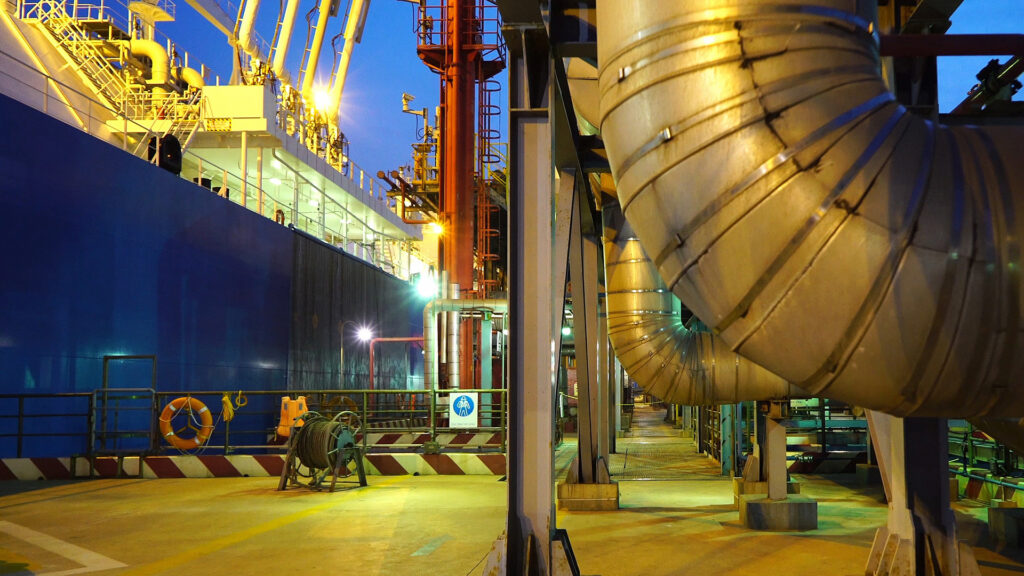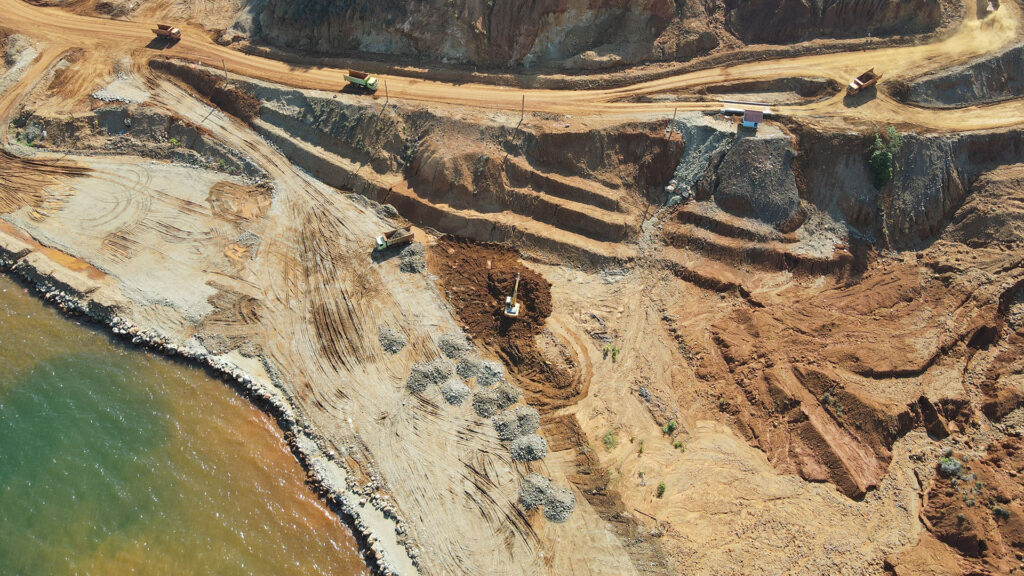Sanctions Update: dealing with changes to the landscape
Keeping abreast of sanctions against Iran has never been more difficult, with a host of changes over the past few weeks, and more anticipated in the weeks ahead. This Briefing focuses on two recent changes which relate to the EU asset freeze and which will have an impact on companies worldwide that are engaged in any direct or indirect trade with Iran.
We look in particular at the risk that non-EU insurers and other non-EU companies trading with Iran may themselves be added to the list of asset freeze targets, because they provide insurance or other “essential services” to certain Iranian entities.
Introduction
There have been significant political, legislative and judicial developments in the two months since Hassan Rouhani was elected President of Iran. The diplomatic dialogue has been cautiously positive, and includes an agreement between the UK and Iran to appoint non-resident Chargé d’affaires in London and Tehran, nuclear talks in Geneva at the time of writing, and various discussions at the UN General Assembly in New York.
At the same time, economic sanctions remain an important tool to support diplomatic efforts, and we have seen contrasting developments in this area. A small number of Iranian entities have successfully challenged their designation as EU asset freeze targets, although there remains the possibility of an appeal by the EU (the Council).
As well as ensuring that their screening programmes are up-to-date and that they are checking their counterparties and other entities against the most current EU sanctions list, companies will need to think carefully about whether these changes affect them (or their trading partners) in any other way. Companies engaged in trade with Iran will need to assess carefully the impact of the removal of these entities and consider whether the effect of other restrictions means that they are still unable to trade with these particular entities.
Following publication of a new Regulation on 12 October, there are three additional grounds on which companies (including non-EU companies) may be added to the list of asset freeze targets. Companies engaged in trade with Iran will need to consider carefully whether they are now at increased risk of being added to the list of EU sanctions targets.
EU asset freeze
The EU maintains, as part of its ongoing sanctions regime against Iran, an extensive asset freeze list, now comprising over 100 individuals and almost 500 entities.
The funds and economic resources of the listed entities and individuals are frozen, and it is also prohibited for EU companies and individuals to make funds or economic resources available directly, or indirectly, to or for the benefit of the designated entities and individuals. As such, the EU sanctions effectively prohibit the designated persons and entities from trading (subject to limited derogations). Banks, insurers and other commercial organisations must keep track of the expanding sanctions lists to ensure that they avoid the legal and reputational risk of inadvertently dealing (even indirectly) with newly listed parties.
The EU Iran sanctions list has grown dramatically from the original 2007 sanctions (in which the asset freeze was limited to 12 individuals and 10 entities) to the current lengthy list. With almost 100 individuals and over 450 entities added in a relatively short period of time, and sometimes with only limited information being provided about the basis for the designation, two of the issues which have been heavily debated are, firstly, the grounds for designation and, secondly, the extent to which there is effective judicial supervision of the process by which individuals and entities are listed.
New grounds for designation
From 12 October, there are three additional grounds upon which entities (which will of course include non-EU entities) may be designated (i.e. added to the list of companies which are subject to the EU asset freeze).
The effect of designation is that the entity’s funds and economic resources in the EU will be frozen and it will be prohibited for any EU person or entity (including a bank) to make any funds or economic resources available to them, effectively ruling out all trade with companies in the EU. It should be highlighted that a listing is an administrative, rather than a judicial function, and therefore can be achieved quickly. In addition, the criteria for listing do not include a defence where the company has exercised due diligence (unlike the substantive offences).
The first new ground for designation is that the person or entity has evaded or violated EU or UN sanctions. It is unclear whether the intended effect of this is that non-EU companies which engage in trade with Iran which is not prohibited by the legislation to which they are subject, but which would be prohibited if they were subject to EU legislation, are at risk of being designated. If that is the case, then this would be a clear instance of the EU seeking to apply its restrictions extra-territorially.
The second new ground for designation is that the person or entity has provided insurance or other “essential services” to Islamic Republic of Iran Shipping Lines (IRISL) or to entities owned or controlled by it or acting on its behalf.
IRISL has of course been subject to the EU asset freeze since July 2010, with the result that, since then, it has been prohibited for any EU person or entity to provide any funds or other economic resources directly or indirectly to or for the benefit of IRISL (or a host of named entities which are said to be owned or controlled by IRISL or acting on their behalf). In addition, EU insurers are of course already prohibited from providing insurance to IRISL (and other Iranian persons, entities and bodies).
As a result, this latest measure appears to be targeted at one or more of the following:
- Non-EU persons or entities.
- EU companies, in the event that IRISL succeeds in being delisted (see below).
- EU companies which breach the sanctions by trading with IRISL (or the Islamic Revolutionary Guard Corps (IRGC) – see below), in circumstances where the EU considers that the punishment imposed by listing is more severe than the fine which would be imposed for violating the sanctions, or the EU wishes to list the company (rather than argue in the courts that it has breached the sanctions) for the reasons highlighted above.
Essential services are not defined and it is unclear precisely what is intended to be included within this broad term. What is clear, is that any EU or non-EU company which trades with Iran, and any non-EU insurer which provides insurance to Iranian persons or entities, needs to ensure that they are not providing insurance or other essential services to IRISL or to entities owned or controlled by it or acting on its behalf.
The third new ground for designation is that the person or entity has provided insurance or other “essential services” to entities owned or controlled by the IRGC or acting on their behalf.
The IRGC has of course been subject to the EU asset freeze since July 2010, and the points made above with respect to IRISL apply equally to the IRGC. Any EU or non-EU company which trades with Iran and any non-EU insurer which provides insurance to Iranian persons or entities needs to ensure that they are not providing insurance or other essential services to the IRGC or to entities owned or controlled by them or acting on their behalf.
Grounds for challenging a designation
Under EU law, listed entities and individuals can challenge the legality of their listings before the General Court of the European Union (General Court), as well as by making written submissions to the Council. Recently, a number of listed entities and individuals have successfully challenged the legality of their listings (at least at first instance).
On 6 September 2013 and 16 September 2013, the General Court released a series of key decisions which overturned the restrictive measures imposed on certain Iranian entities and individuals.
Before looking at the basis for the decisions, we will consider the wider impact of these decisions on commercial organisations, including banks.
Commercial impact of the recent decisions
The decisions by the General Court are obviously of direct interest to the listed entities, but they also impact on commercial organisations in the EU, including banks, insurers, traders, and transport operators.
From a practical perspective, although the General Court annulled a series of measures in the cases referred to below, these annulments will not take immediate effect, other than in the case of Europäisch-Iranische Handelsbank, although that company remains subject to more recent restrictive measures. Instead, the Council has a two-month and ten-day time limit to appeal to the Court of Justice and, as a matter of EU law, the effects of the listings will be maintained until the expiry of that period.
Even if there are no appeals (such that the entities are removed from the EU list), it should be stressed that the complex patchwork of legal restrictions means that, whilst these entities may no longer be subject to the asset freeze, a host of other restrictions may also continue to apply.
For example, the rules on transfers of funds to and from Iranian persons will still apply to all of the entities and the restrictions which apply in respect of insurance mean that EU insurers will remain unable to provide insurance to these Iranian entities.
Likewise, restrictions on services to Iranian flagged vessels and restrictions on financing will continue to bite. There may also be a delay between the legal process (i.e. de-listing) and a commercial willingness, on the part of banks and other commercial organisations, to trade with the de-listed entities.
Finally, it is worth stressing that the de-listed entities may ultimately be re-listed by the EU. Even if they are not, companies which are affected by sanctions imposed by other jurisdictions (for example the United States) will have to consider carefully the status of the de-listed entities under those sanctions (e.g. whether they are still US SDNs – i.e. individuals or companies on the Specially Designated Nationals list) and whether extra-territorial measures from the United States effectively nullify the de-listing.
Basis for the decision: failure to provide sufficient evidence
The General Court held in cases brought by Post Bank Iran, Iran Insurance Company, Good Luck Shipping LLC and Export Development Bank of Iran that the Council had failed to prove the facts of which it accused the companies in question.
For instance, in Post Bank Iran, the General Court held that “the Council has produced no information or evidence in support of the grounds relied on in the contested measures.”
While the General Court recognised in Iran Insurance Company the difficulty of demonstrating the involvement of a person or entity in nuclear proliferation (given the inherently clandestine nature of the activity), the Court went on to say that “the effect of such difficulties cannot be that the Council is entirely relieved of the burden of proof which rests on it.”
It is now clear that the Council must present concrete information or evidence to justify the listing of an entity or individual and that mere allegations will not be adequate. It is also now clear that the Council cannot “rely on a claim that the evidence concerned comes from confidential sources and cannot, consequently, be disclosed.”
Basis for the decision: error of assessment
In the case brought by Europäisch-Iranische Handelsbank AG, the General Court ruled that the Council committed an error of assessment by adopting the listing proposal of a Member State without evaluating the allegations contained therein.
In four other decisions (cases brought by Islamic Republic of Iran Shipping Lines, Persia International Bank plc, Iranian Offshore Engineering and Construction Co. and Naser Bateni), the General Court ruled that the Council made an error of assessment inasmuch as the facts and evidence on which it relied did not by themselves justify the adoption and/or maintenance of restrictive measures.
In the case brought by Islamic Republic of Iran Shipping Lines (IRISL), the General Court ruled in favour of IRISL and 17 other companies owned or controlled by IRISL or acting on its behalf, and rejected the Council’s argument that the applicants should be subject to restrictive measures, because of shipments of arms and related material which the Council argued helped to finance nuclear proliferation.
The General Court held in the IRISL case that the Council had not produced “any specific evidence that would substantiate the assertion that the transportation by IRISL of proscribed military material served to finance nuclear proliferation.” The General Court also rejected an argument that the measures could be justified on the basis of “the mere risk that the person or entity concerned may in the future provide support for nuclear proliferation.”
Basis for the decision: failure to state reasons
The General Court held in its decision in the case brought by Bank Refah Kargaran that the Council had breached its obligation to state reasons and the obligation to disclose the evidence used against the entity in question.
The General Court observed that the measures set out only a single reason: that the entity had “taken over” ongoing operations from Bank Melli after sanctions had been imposed on the latter by the European Union. Yet the Council did not identify any particular operation supposedly “taken over” from Bank Melli and carried out by the applicant. The General Court held that this single reason was therefore insufficiently detailed and, accordingly, annulled the contested measures.
Conclusions
The recent cases indicate that the General Court is prepared to consider legal challenges that are based on classical notions of natural justice (i.e. a general duty of the Council to act fairly, give reasons, etc.).
However, it is important to stress that different judges or Chambers within the General Court appear to have different views as to the extent of the supervision to be exercised by the General Court. By way of example, on 13 September 2013, the General Court upheld the restrictive measures imposed against two Syrian individuals, even though the Council had not produced concrete evidence that these individuals had actually engaged in activities which justified their listings.
Interested parties should also be aware of the significant risks that remain when trading with entities in Iran, and will continue to apply even where particular individuals and/or entities are de-listed. These include restrictions which apply generally, such as the EU rules on transfers of funds, EU rules on the provision of insurance to Iranian persons and entities, and EU rules on the supply of services to Iranian vessels.
For example, any de-listing will have no impact on the general prohibition on the provision of insurance to Iranian entities, which means that EU companies remain unable to provide insurance or reinsurance, or broker the provision of insurance or reinsurance to any of the Iranian entities mentioned in this Briefing, even if those companies are formally removed from the list of companies subject to the asset freeze. Likewise, transfers of funds will still need to be processed in accordance with the usual rules on authorisations and notifications.
There has also been some discussion in the EU and the US about new EU or US measures which would effectively render the de-listing irrelevant, for example by prohibiting any support to Iranian shipping, in line with US sanctions. In its decision in Islamic Republic of Iran Shipping Lines, the General Court explicitly acknowledged this possibility by stating that “if the Council is of the opinion that the applicable legislation does not enable it to intervene in a sufficiently effective manner in order to combat nuclear proliferation, it is open to the Council to amend it in its role as legislator.”
The new grounds for designation give the Council scope to look carefully at non-EU companies which engage in trade with, or insure, IRISL and the IRGC or related companies. Significantly, they also give the Council grounds to list EU companies (rather than prosecute them in the national Courts for breaching the sanctions) in circumstances where the EU considers that this is more effective or straightforward.
As a result, any companies which engage in commerce with Iran should take active steps to ensure that they are not at risk of being designated on these grounds.
For more information, please contact Daniel Martin, Partner, on +44 (0)20 7264 8189 or daniel.martin@hfw.com, or Anthony Woolich, Partner, on +44 (0)20 7264 8033 or anthony.woolich@hfw.com, or your usual contact at HFW.
Download a PDF version of ‘Sanctions Update: dealing with changes to the landscape’











-1024x683.jpg)